When considering a new travel trailer, various factors such as brand, size, amenities, and type must be considered.
These aspects play a significant role in determining the price range, and understanding the differences can help you find the perfect travel trailer within your budget.
Additionally, seasonal and geographical price variations, financing options, and the overall cost of ownership over time can also impact the price point of your future home on wheels.
Key Takeaways
- The average cost of new travel trailers depends on factors like brand, size, and amenities.
- Seasonal and geographical price variations, as well as financing and insurance, play a role in the overall cost.
- Understanding differences in trailer types and negotiation tactics can help you get the best price for your new travel trailer.
Understanding Travel Trailer Costs
Base Price Factors
When researching the average cost of new travel trailers, I found that prices can range from as low as $10,000 to as high as $75,000, depending on various factors.
One of the most significant factors influencing the cost of a travel trailer is size. Smaller, lightweight trailers can cost less than $20,000, while larger, more luxurious models can reach upwards of $40,000 or more.
The construction quality also plays a role, as more expensive trailers typically have higher-quality materials and superior craftsmanship.
Another aspect that impacts the base price is the type of construction used. There are two common construction methods: stick and tin and fiberglass.
Travel trailers built using the stick and tin method tend to be more affordable than ones using fiberglass.
With this information, here’s a brief breakdown of travel trailer costs based on size:
- Small trailers (16 – 22 feet): $10,000 – $20,000
- Medium trailers (23 – 26 feet): $20,000 – $30,000
- Large trailers (27 – 35+ feet): $30,000 – $75,000
Add-Ons and Customization
Customizing your travel trailer can also have a significant impact on the final price.
Manufacturers offer various add-on features and upgrades, such as luxury appliances, entertainment systems, and additional living or storage spaces.
When exploring example prices of different travel trailers, cost variations were often attributed to these customizations.
Here’s a list of common add-ons and customizations that can affect the cost:
- Higher-end appliances (such as washer/dryer combos, convection ovens, or larger refrigerators)
- Upgraded cabinetry and countertops
- Solar panels or generators
- Additional sleeping or seating areas
- Expanded outdoor living spaces (such as awnings, outdoor kitchens, or external storage compartments)
- Entertainment systems (such as premium audio or large screen TVs)
When considering a new travel trailer, I suggest making a list of must-have features and add-ons so you can better understand the associated costs and prioritize your budget accordingly.
New vs. Used Travel Trailers
Depreciation Rates
Purchasing a new travel trailer can be quite exciting, but it’s important to consider the depreciation that comes with a brand new purchase.
Just like other vehicles, travel trailers experience a significant drop in value when they’re driven off the lot, which is known as depreciation. On average, a new travel trailer can lose about 20% of its value within the first year of ownership1, and it continues to depreciate over time.
I’ve compiled a table to give you a better idea of the depreciation rates for travel trailers over the years:
| Year | Depreciation Rate |
|---|---|
| 1 | 20% |
| 2 | 10% |
| 3 | 8% |
| 4 | 5% |
| 5 & more | 3% |
Pre-Owned Market Values
Generally, pre-owned travel trailers come at a lower price compared to their brand new counterparts.
This is because they have already experienced the biggest drop in value – the initial depreciation.
The average cost of a new travel trailer ranges from $11,000 to $40,0002. However, you can find used travel trailers in the market for much less, sometimes even half the price.
Here is a list of factors that can impact the market value of a pre-owned travel trailer:
- Age: The age of a travel trailer can significantly affect its value. Older trailers may have less reliable and outdated features, while newer models can offer more advanced and updated amenities.
- Condition: The overall condition of a trailer is critical when trying to determine its worth. A well-maintained travel trailer will naturally have a higher market value than a poorly maintained one.
- Brand: Different travel trailer brands have different resale values. Renowned brands with higher build quality are likely to maintain their worth better than lesser-known brands with a history of poor quality control.
- Size and Features: The size and features offered by a travel trailer can influence its resale value. Large trailers with high-end amenities usually command higher prices, while compact ones with basic features tend to be more affordable.
While I can’t provide specific pricing for every pre-owned travel trailer on the market, you can use the tips above to determine whether it’s a good deal.
Don’t forget to do thorough research and inspect any used travel trailer before purchasing.
Average Prices by Trailer Type
Pop-Up Campers
My experience with pop-up campers is that they are the most budget-friendly option for those looking to start their RVing journey.
A new pop-up camper typically costs between $5,000 and $15,000, depending on the model, brand, and features included. These campers are compact, lightweight, and easy to tow, making them a popular choice for first-time RVers.
Travel Trailer
Travel trailers are available in a variety of sizes and price ranges. On average, a new 24-foot travel trailer costs approximately $23,000 but can range from as low as $11,000 to over $40,000 for high-end models.
Smaller, lightweight travel trailers are usually available for less than $20,000. One reason for their popularity is their versatility, which allows owners to tow them with a variety of vehicles.
Fifth Wheel
Fifth wheels are larger than travel trailers and offer more living space and luxury features. Prices for new fifth-wheel campers can vary widely, with some smaller options suitable for retired couples costing around $30,000, while high-end models can exceed $100,000.
Keep in mind that these trailers require a specific hitch in the bed of a pickup truck, limiting your towing options.
Toy Hauler
Toy haulers are a unique type of travel trailer, designed to carry adventure gear such as motorcycles, ATVs, or bikes.
They typically include a garage area in the rear, which can be converted into additional living space when not in use.
Prices for a new toy hauler can range from $20,000 to $60,000 or more, depending on the size and features.
Like other types of RVs mentioned in this beginner’s guide, your budget and lifestyle preferences will play a significant role in determining which option best suits your needs.
Brand Comparison and Prices
Economy Brands
When it comes to affordable travel trailers, brands like Jayco and Gulf Stream offer great options for those looking to minimize expenses.
Jayco models start at around $11,000, while Gulf Stream trailers begin at about $9,000.
These brands are known for their basic construction and amenities, yet they still provide comfortable accommodations for road trips or weekend getaways.
Mid-Range Brands
If you’re interested in a travel trailer that balances price and quality, consider Winnebago, Grand Design, or Coachmen.
These mid-range brands offer a wide variety of models and floorplans, with prices starting in the low $20,000 range and going up to approximately $40,000. Winnebago and Coachmen compete with each other in terms of build quality, amenities and overall versatility.
Grand Design, a newer player in the market, has gained a reputation for well-crafted trailers and innovative designs.
Luxury Brands
For those seeking a high-end travel trailer experience, brands like Airstream and Rockwood offer top-of-the-line options.
These luxury brands typically come with higher price tags, but they boast superior quality, materials and craftsmanship.
Airstream’s Flying Cloud model, for example, has an MSRP range of $94,400 to $124,500. Rockwood trailers are known for their impressive array of features, customization options and use of premium materials.
As you consider the perfect travel trailer for your needs, remember that price doesn’t always equal quality. By exploring different brands and pricing tiers, you can find the perfect balance between budget and preferences.
Remember, investing in a travel trailer is about carving experiences and memories, so choose the option that suits your lifestyle the best.
Size and Amenities Impact on Price

Small Trailers
Small travel trailers are perfect for those who prefer a more compact and lightweight option. They are usually easier to maneuver and can accommodate 1-2 travelers.
Smaller models typically have fewer amenities and less interior space, which reflects in their lower pricing. You can find small travel trailers for as low as $10,000, and some even under $8,000.
The materials used in constructing RVs, such as Azdel and Luan, can also play a role in the overall cost. Choosing more cost-efficient materials can keep the price down.
Medium Trailers
Medium-sized travel trailers offer a balance between living space, amenities, and affordability. While they are still more expensive than small trailers, they can provide more features and comfort for travelers.
The average cost of a medium travel trailer is around $24,000, with various models having prices ranging from $11,000 to $40,000.
It’s important to research the components used in the RV, such as the frames by manufacturers like Lippert. A quality frame can contribute to the RV’s durability, but it can also impact the price.
Large Trailers
Large travel trailers provide the most amenities, living space, and luxurious experience. These models cater to travelers who are looking for a comfortable and fully-equipped journey.
Depending on the brand, materials, and features, the prices for large trailers can range from $40,000 to $100,000.
As you can see, the size and amenities of travel trailers greatly influence their pricing.
When choosing a travel trailer, remember to consider your needs, plans, and budget so you can make the best decision for your RV adventures.
Financing Your Travel Trailer
Loan Options
When it comes to financing your travel trailer, you have several options. Banks, credit unions, and online lenders all offer RV loans.
The type of loan you choose may depend on factors such as your credit score, the amount you need to borrow, and the term length. LendingTree is one resource you can use to compare loan rates and terms from multiple lenders.
Interest Rates
Interest rates vary depending on your credit score, term length, and the type of RV loan you choose.
For example, Compass Credit Union offers APRs as low as 4.24% for 48-month loans for new RVs, while a 180-month loan for a new RV has a starting rate of 7.24%.
Remember that borrowers with credit scores above 720 often receive slightly lower rates.
Long-Term Costs
It’s essential to consider the long-term costs of financing your travel trailer. A longer loan term might result in lower monthly payments, but you could end up paying more in interest over the life of the loan.
To estimate your monthly payment and the total cost of your loan, you can use an RV loan calculator. Also, think about other expenses such as insurance, maintenance, and campground fees, which can add up over time.
When selecting a loan, I encourage you to explore all options and pick the one that best fits your financial needs.
While the purchase price of a travel trailer can range from $11,000 to $40,000 or more, with careful planning and smart financing, you can enjoy years of comfortable and cost-effective travel.
Insurance and Registration Fees
Insurance Costs
Insurance for travel trailers can vary greatly depending on different factors, such as the value of the trailer, where it’s registered, and the level of coverage chosen.
On average, RV insurance costs between $125 and $1,000 per year, but some policies can be found for as low as $125 per year for limited coverage in some cases.
When shopping around for insurance, it’s essential to compare quotes from multiple providers and choose the policy that’s right for your specific situation.
This will ensure you’re not overpaying while also getting the coverage you need.
Registration and Taxes
In addition to insurance, there are other costs to consider when purchasing a new travel trailer, such as registration fees and taxes. The process of registering a travel trailer can be complex, with different rules and regulations depending on the state where it’s registered.
The fees for registration and taxes can vary widely based on the state, the trailer’s value, and its weight. As an example, some states charge a flat rate for registration, while others base the fee on the value, age, or weight of the vehicle.
For a more accurate estimate of how much these fees might cost in your area, consult the DMV car sales tax and tags calculator provided by your local Department of Motor Vehicles.
When living full-time in an RV, you also need to consider your address.
It’s crucial to establish a proper domicile to be able to receive mail and handle other legal matters related to your residence. This can also play a role in determining your insurance and registration fees.
By considering all these factors, you should be able to estimate the average cost of insurance and registration for your new travel trailer and make a well-informed decision.
Seasonal and Geographical Price Variations
Off-Season Deals
In my experience, purchasing a travel trailer can be more cost-effective during off-season times.
Since the demand for RVs typically decreases once the peak travel season is over, dealerships may offer discounts or other incentives to make room for newer models.
I suggest looking for deals starting in the fall and continuing throughout the winter months.
It’s important to keep an eye out for price fluctuations and adjust your search accordingly. This strategy is not only mentioned in various articles, but also by experts who have experience in timing an RV purchase right.
Regional Pricing Differences
It’s worth noting that geographical location can also impact the average cost of a new travel trailer.
Prices tend to vary depending on factors such as local market trends, regional taxes, and transportation costs.
For instance, regions with a higher cost of living may result in higher prices for travel trailers. Additionally, areas with a prevalence of RV dealerships could offer more competitive pricing due to an increased supply and competition among sellers.
When considering where to buy your RV, it would be wise to research the regional pricing differences and potentially expand your search to nearby states or cities to find better deals.
In some cases, it might be more affordable to travel a bit further to make your purchase and still save money overall.
By understanding seasonal and geographical price variations, you can make informed decisions when looking to buy a new travel trailer, ultimately maximizing your budget and ensuring you get the best possible deal for your needs.
Cost of Ownership Over Time
Maintenance
Owning a new travel trailer comes with various maintenance expenses that need to be considered. Regular service appointments are crucial in ensuring the trailer stays in good condition and provides a safe traveling experience.
The Cost of RV Ownership: Complete Expense Analysis provides an in-depth look at some of the potential maintenance costs associated with owning an RV.
I can learn from this analysis that some expenses include tire replacements, brake inspections, and roof maintenance.
Upkeep
Apart from regular maintenance, travel trailers also require routine upkeep to keep them functional and comfortable. Upkeep costs may cover things like cleaning supplies, replacement of worn-out items such as mattresses, and small repairs.
I also need to think about protecting the interior of my travel trailer, which may involve tinting the windows. Tinting can be both practical and aesthetic, offering benefits such as shielding the interior from sun damage.
The cost of tinting RV windows varies depending on factors like the size and type of the vehicle.
Resale Value
When evaluating the overall cost of owning a travel trailer, it’s wise to consider resale value as well. The depreciation rate of the trailer will affect the return I may get if I decide to sell it.
Travel trailers tend to depreciate in value just like any other vehicle, and many factors can impact their resale value.
The make, model, and condition of the trailer play significant roles, as well as the market demand for specific types of trailers.
By keeping my travel trailer well-maintained and up-to-date, I can help maintain its resale value and minimize the overall cost of RV ownership over time.
Negotiation Tactics for Best Prices
I’m going to share some negotiation tips to get the best deals on new travel trailers. With proper knowledge, you’ll be able to save money and enjoy your new RV without worrying about overpaying.
We will cover negotiating with dealers and tips for buying from private sellers.
Dealer Negotiations
When buying a travel trailer from a dealership, consider the following:
- Trade-in: If you have a trade-in, it can lower the overall cost of the travel trailer. Dealerships may be more willing to negotiate prices if you have a trade-in to offer. However, make sure to research your trade-in’s value so you don’t get low-balled.
- Financing: Some dealerships may offer promotional rates, incentives, or cash discounts if you finance through them. Keep in mind that paying cash doesn’t always guarantee a better deal1.
- Comparison Shop: Visit several dealerships and compare prices, models, and features to get a better understanding of the market value of travel trailers. This can strengthen your bargaining position. Be prepared to walk away if the dealer doesn’t meet your desired price.
- Ask Questions: Don’t be afraid to ask questions during the negotiation process2. Inquire about warranties, maintenance, and any other pertinent information to make an informed decision.
Private Seller Tips
If you’re buying from a private seller, keep these tips in mind:
- Do Your Research: Have a clear understanding of the make, model, and features of the travel trailer you’re interested in, as well as its market value. Compare prices of similar models to gauge whether the asking price is reasonable.
- Inspect Thoroughly: When considering a privately-owned trailer, it’s crucial to inspect it meticulously. Look for any signs of damage, rust, or wear and tear. Ask the seller about the maintenance history and any past issues or accidents3.
- Negotiate: Be upfront with your expectations and the price you’re willing to pay. Private sellers, unlike dealerships, may not have the same profit margins, but they still might be more flexible on the price.
- Payment Method: Determine your preferred payment method ahead of time and communicate this to the seller. Whether it’s cash, wire transfer, or a personal check, make sure you both agree on the terms before closing the deal.
Keep these tips in mind as you shop around for a new travel trailer. With the right negotiation strategies, you’re sure to find the perfect new RV at a great price.


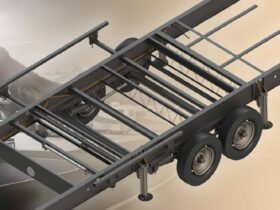
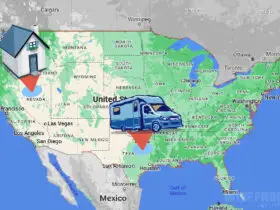
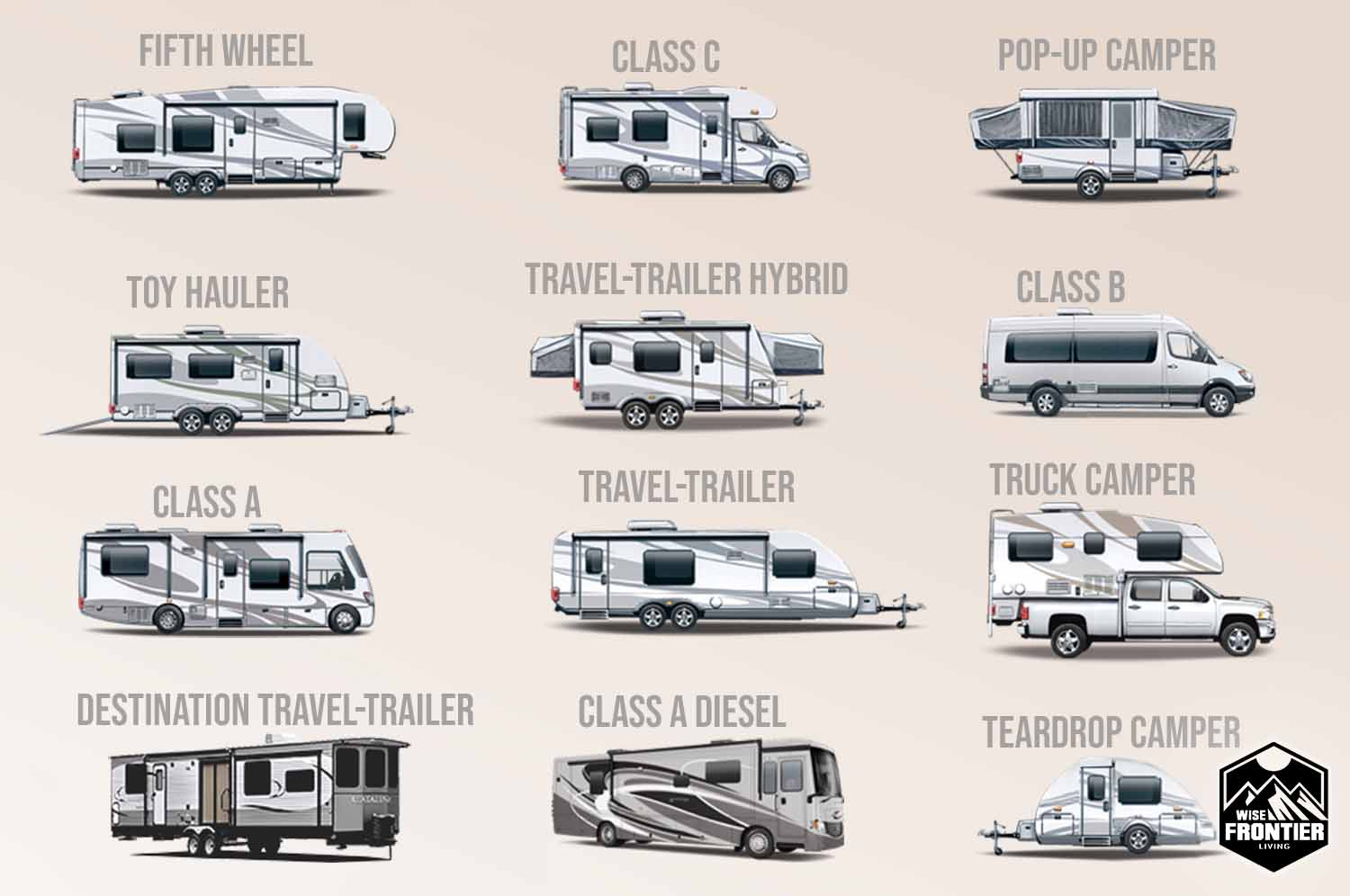
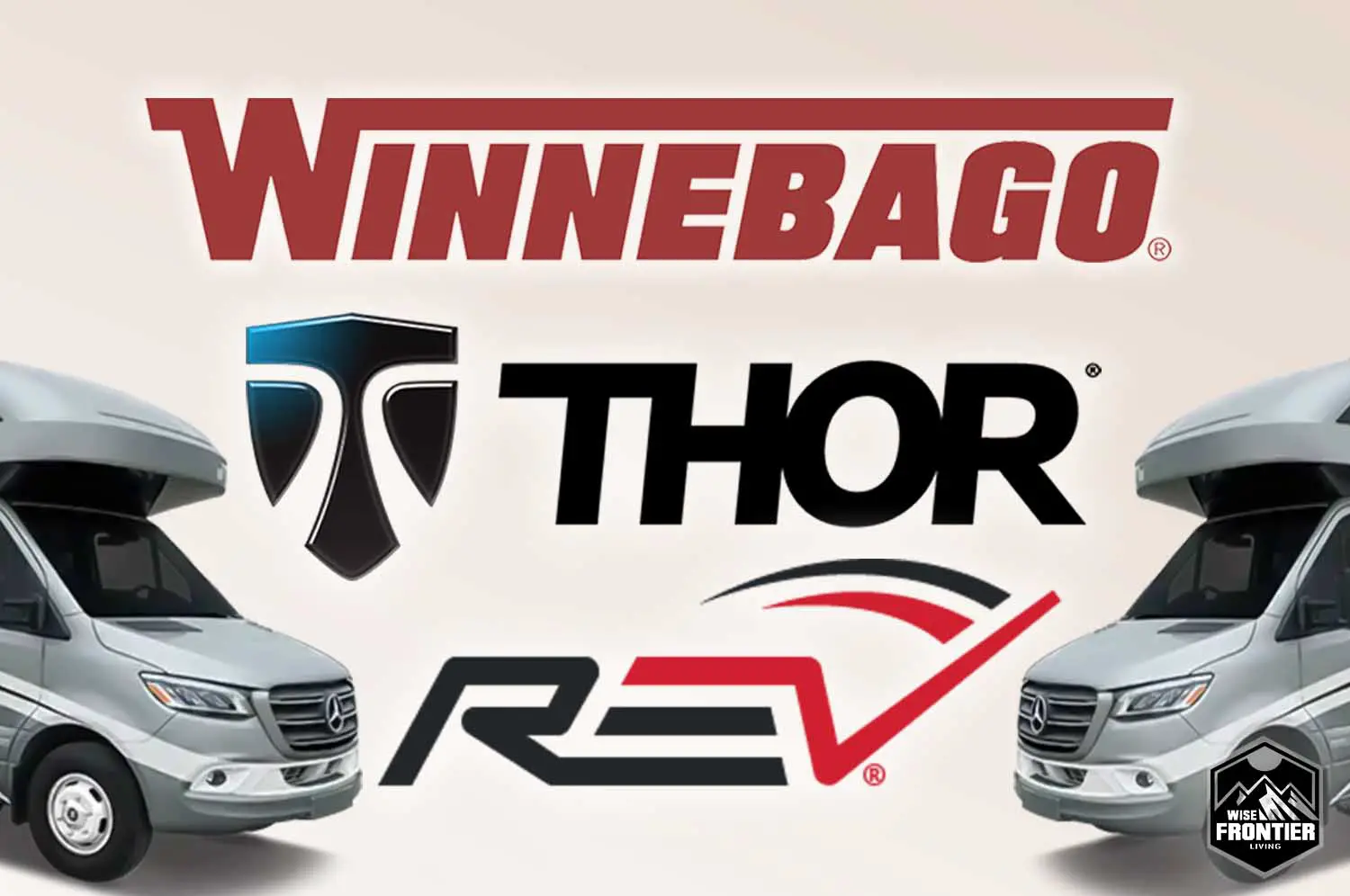



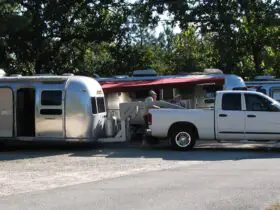
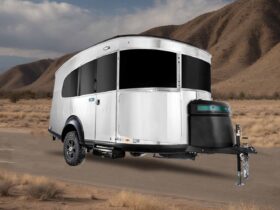

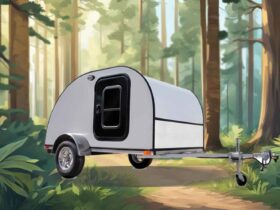
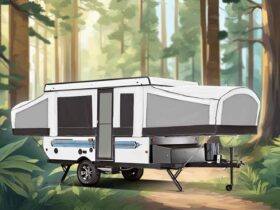

Leave a Reply